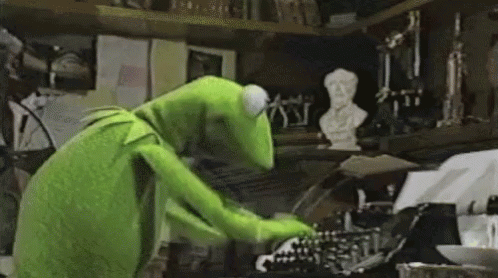Last week, I finished another novel.
Full disclosure: I’m not here to sell my book. It was awful, full of plot holes, and will never see the light of day. **
**except for the fact that I entered it in a contest. More on that in a minute.
Even though this was not my favorite story to write, I finished it anyway, and the process taught me several things about writing that I didn’t know before.
So without further ado, here are 7 lessons that I learned by finishing my (really bad) novel.
1. Don’t Wander Into It With a Dumb Plot
I learned this one the hard way.
It’s better to start with a strong plot and an idea of where you’re going.
If your story has an awesome mic drop ending, you can build everything around that. But if you don’t have a strong ending, it will be a lot harder to write the story.

So figure out your story’s ending, ASAP. Then focus on increasing the drama. How can you add more action and suspense? Are there any plot twists you could throw in?
2. Use Somebody Else’s Deadline

Even though I didn’t like my story that much, I entered it into a writing contest.
Why? So I could take advantage of the deadline.
Some writers can set their own deadlines, but not me. If you’re the same way, try using a contest as motivation to get your writing done.
And remember to be at peace with the results. I am 100% aware that my story will be in last place.
But I already won my own battle. I finished my novel.
You can use contests to motivate you to finish, but don’t set your heart on first place. If you can finish a story, that’s a huge victory in itself.
3. Snark Does Not Equal Character
Sad, but true.
My main character had this issue for the first few chapters, until I sat down to work on her character development.
Sarcasm alone does not make a good character.
4. If You Don’t Like a Scene, Use White Text

If you absolutely hate a paragraph (or a scene, or a chapter, or the whole story), change your font color to white. That way, you won’t see it. Out of sight, out of mind.
Voila! Now you can tell your inner critic to shut up.
When you’re ready to edit, select the invisible white text and change it back to black. Or just delete it. It’s up to you.
5. Choose the Right Verbs
Even a bad story can sound like a good story if you tell it right.
Here are some weak verbs you should try to replace as much as possible:
• Walk (instead, try words like “tiptoed” or “stalked” or “paced”)
• Run
• Look/see
• Go/went
• Passive voice (was + ing verb, like was flying, was walking, was standing)

A few months ago, I wrote a blog post about verb choice, which you can check out HERE.
I should have followed my own advice. For the first half of the story, my verbs were a mess. It wasn’t until the last few chapters that I finally figured out how to use verbs again, and my writing got a whole lot easier.
Good verbs can make a huge difference.
6. Stick With It
If I had a dollar for every time I abandoned a work in progress…

Don’t do it. Just don’t.
Thankfully, I was able to reach a compromise with myself:
- Focus on one story until you reach chapter 6 (for me, that’s usually about 1/3 of the story).
- You can brainstorm and outline other stories, but don’t start writing them until your original story is finished.
If your life is overrun with plot bunnies, take a deep breath and remember the most important lesson of all:
7. The Last Chapter is Super Satisfying to Write

The end of your novel is an amazing place to be. It is worth all the pain and agony to get to that last chapter, because there’s nothing more satisfying than typing the words “The End.”
I wish I could go back in time and remind myself about this.
Once you reach that last chapter, life is heaven, and you will love every second of it. It is 100000 times better than chasing after plot bunnies your whole life. I promise.
So keep going! It’s all going to be worth it in the end.
How many novels have you written? Do you have any advice that you would give to young writers? Leave a comment and let me know!
Thanks for reading, and I’ll be back with a new post next Monday!




The only advice I’d give is to stick with it: Keep daydreaming, keep writing and keep reading.
Great post!
That is great advice! Thank you for sharing 😁
oh yes I learnt “don’t go in with a dumb plot” the first time I tried to write (and failed). ooh white text seems like a useful idea. And definitely agree with sticking with it and how satisfying it is to write “the end”!
Thank you for your comment! Yes, the best part is writing “the end!” 😄